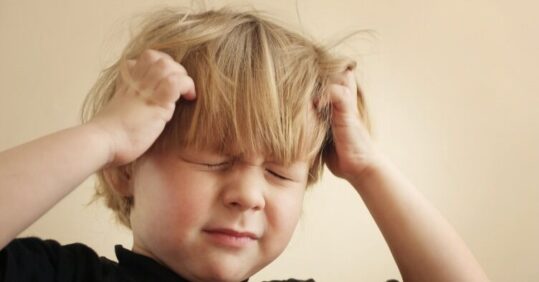Poor treatment for children with migraines ‘very concerning’, says school nursing body

The findings of a study into the experiences of children with migraines are ‘very concerning’, a school nursing body has said, as a third of children say the treatment of their migraine was ‘poor’.
Of 61 school-age children surveyed, 33% felt the treatment of their migraine was poor, 30% said it was fair, 23% said good and 8% said very good. None described it as excellent.
Related Article: Nurse had to ‘freeze’ PPE during pandemic to re-use in care home, Covid inquiry hears
In addition, 90% said that migraines made it harder to do their school work, but when asked if their school has the information needed to manage their conditions 64% said no, and 97% said they had never been taught about migraines.
School And Public Health Nurses Association (SAPHNA) co-chair Sharon White said that the reports findings were ‘extremely concerning’ and that the ‘usual unacceptable post-code lottery’ and disinvestment in school-nursing had left ‘resources scarce’ in schools.
‘It is vital that health and education communicate well to ensure that children with migraine are supported in schools,’ added Ms White. ‘It is the schools governing bodies responsibility to support the medical needs of children in their school.
‘This includes ensuring their staff have the correct training and information as required. As part of this an individual health care plan should be drawn up between health, education, child/family to support any specific need.’
Related Article: More nursing apprenticeships and changes to student travel expenses
Furthermore, the Migraine Trust also surveyed 64 education professionals including school nurses and teaching assistants. Of those, 78% said that their school didn’t have the information or resources to help children with migraines.
The report recommended that work should be done with SAPHNA in order to provide more training for those working in schools and colleges.
Joel, a child with migraines quoted in the report, said that they ‘had to miss a lot of school and my favourite activities such as football and dance as I could not get out of bed. When I have a migraine attack I need to stay in the dark and sleep.
Related Article: Nurses given ‘range of leadership opportunities’ in NHS 10-year plan
‘Sometimes this can be for a few days. I am now on a good medicine which is helping but it took a long time to find a doctor who could help me.’

See how our symptom tool can help you make better sense of patient presentations
Click here to search a symptom




